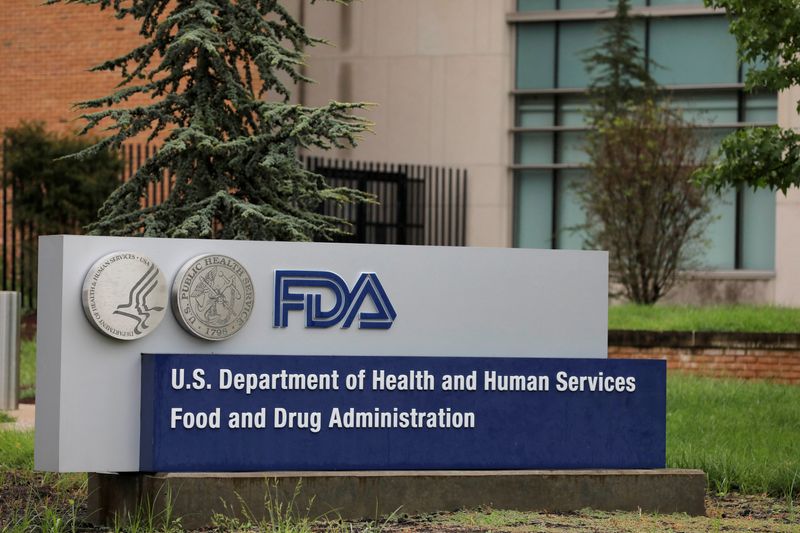By Manas Mishra and Pratik Jain
(Reuters) - The U.S. Food and Drug Administration approved nearly 50% more novel drugs in 2023 than in 2022, putting it back on pace with historical levels, an improvement analysts and investors said could lead to increased investment in biotech firms.
FDA nods for innovative therapies containing an active ingredient or molecule not previously approved, rose to 55 in 2023, up from 37 in 2022 and 51 in 2021. Historical data shows the FDA typically green lights about 45-50 new drugs a year and hit a peak of 59 in 2018.
The agency approved several high-profile therapies such as Eli Lilly (NYSE:LLY)'s obesity drug Zepbound and Eisai and Biogen (NASDAQ:BIIB)'s Alzheimer's treatment Leqembi. It also approved five gene therapies in addition to the 55 novel drugs, including a sickle cell disease treatment from Vertex Pharmaceuticals (NASDAQ:VRTX) and CRISPR Therapeutics using the latter's innovative gene editing technology.
"It is good to see the FDA approvals go up," said John Stanford, executive director of Incubate, a Washington-based group of life sciences investors. He called the advance of gene editing technology particularly encouraging.
"Our scientists can do a lot more, and from that perspective we are excited about what's coming down the pipeline, not just in 2024, but beyond that," he said.
The FDA in a statement said, "the number of novel drugs approved varies from year to year, and may be due to a variety of factors." Those include the complexity of new drugs in development as well as advances in scientific understanding of diseases and disease targets, it said.
The agency did not provide a specific reason for the big drop in approvals in 2022.
TD Cowen analyst Ritu Baral said the COVID-19 pandemic was likely a factor. When the pandemic hit, the agency moved from approving drugs at record pace to operating with a remote workforce, which caused disruption and issues such as delayed inspections that affected drug reviews.
"We're back at those peak levels, which hopefully means that the workflow disruptions, staffing and bandwidth issues and, most importantly, communications with developers, have hopefully been improving, Baral said, adding that she expects a similar level of FDA approvals in 2024.
INVESTMENT DECLINES
Investment in biotech companies over the past two years has been a fraction of historical levels.
After 108 initial public offerings (IPOs) in 2021, there were only 18 each in 2022 and in 2023 as of mid-December. A basket of biotech-focused funds tracked by Piper Sandler saw $15.8 billion in capital outflow in 2023, the largest ever going back to 1992, according to the brokerage.
"2023 has been a year where the market was selective in the companies able to access capital," William Blair analysts said in a December note.
They noted that companies developing GLP-1 weight-loss treatments, the same class as Novo Nordisk (NYSE:NVO)'s wildly popular Wegovy and Lilly's Zepbound, have had better access to the IPO market.
Industry analysts also said lingering investor concern about high interest rates and government scrutiny of drugmakers could hamper a full funding recovery.

"While we don't expect capital markets to return to peak 2020-21, we do think that conditions will improve and that the window will open up," Jefferies analyst Michael Yee said.
Incubate's Stanford said some investors may remain on the sidelines due to increased oversight of deals in the sector, the government's drug price negotiation plans and the threat that the Biden administration is looking to seize patents of medicines developed with government funding if the prices are deemed to be too high.